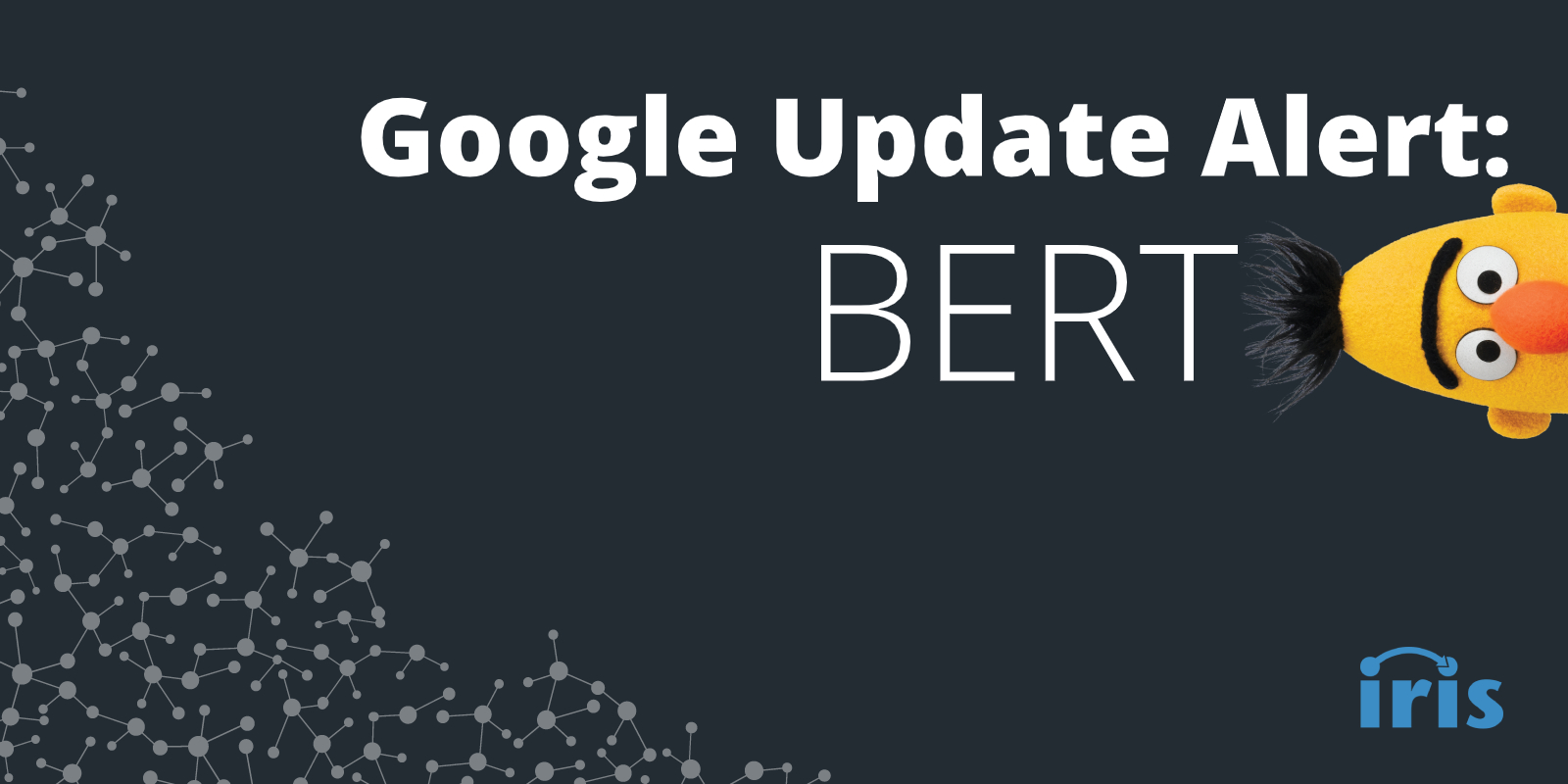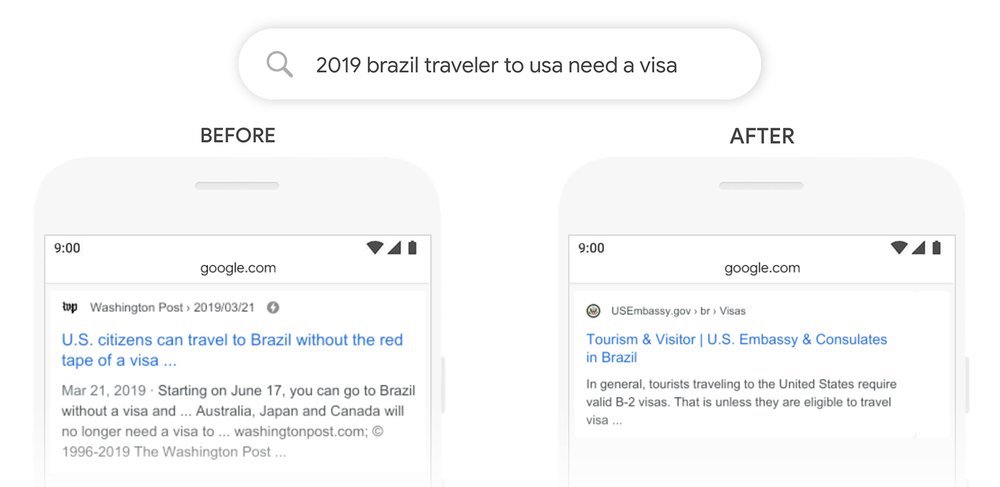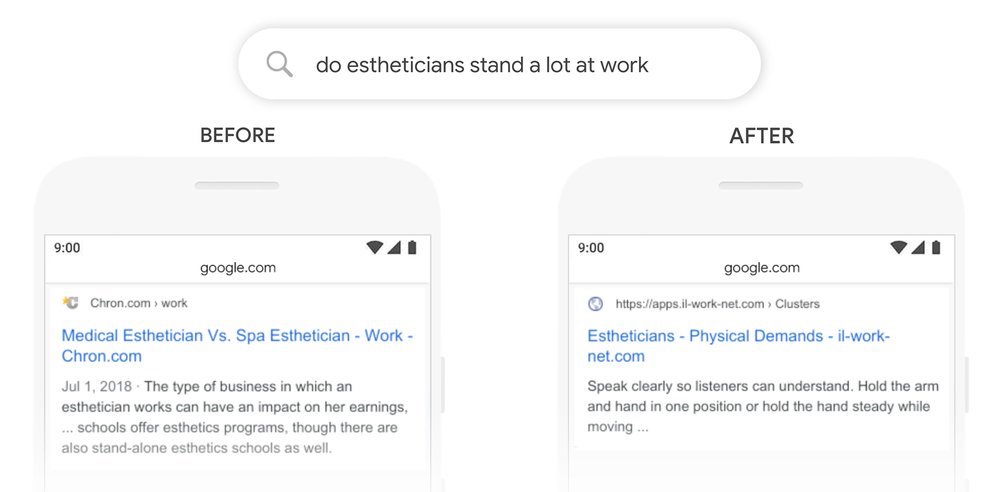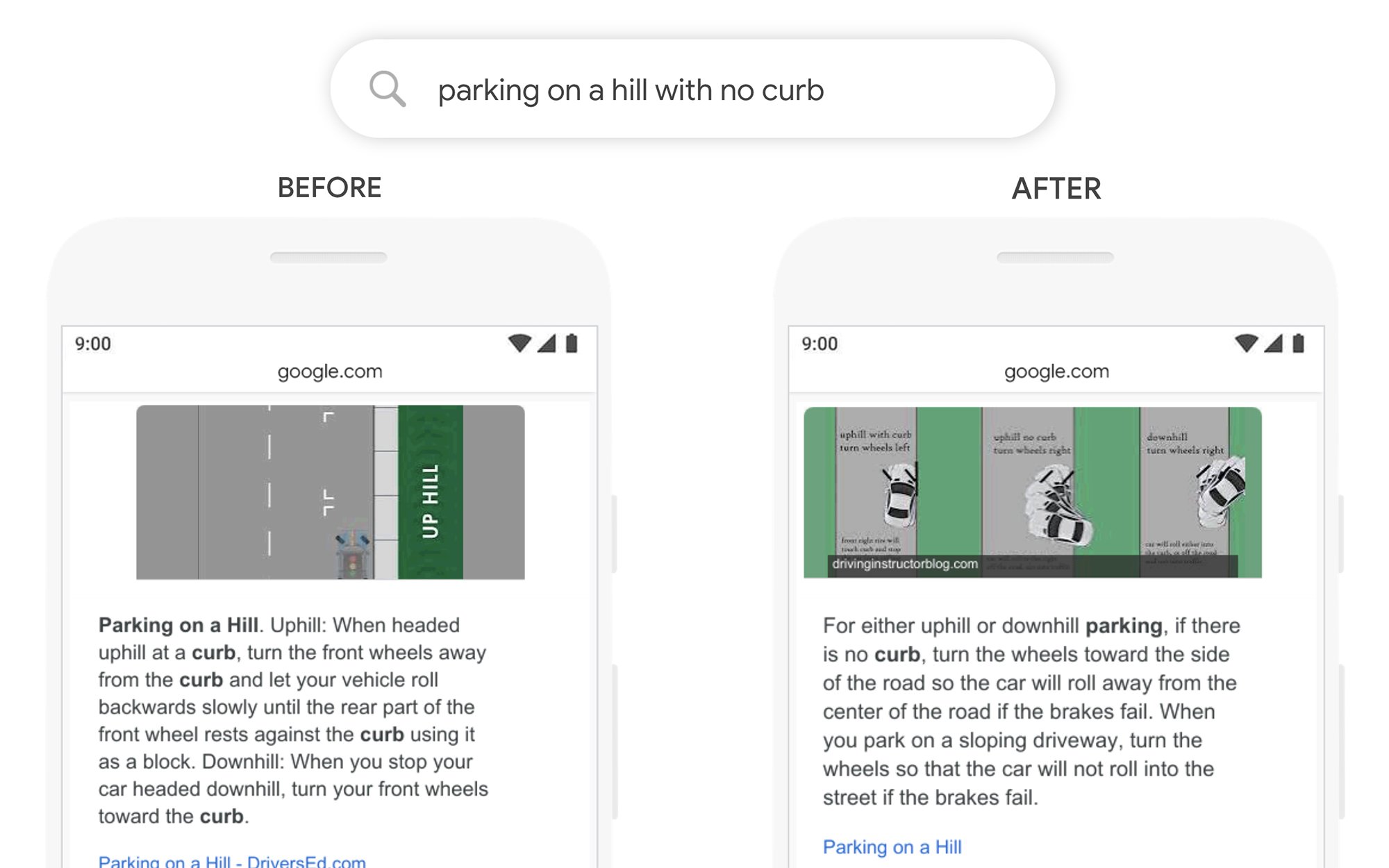
What is BERT?
BERT stands for Bidirectional Encoder Representations from Transformers and is being called the biggest change to Google’s algorithm in the last five years.
BERT allows Google to better understand language, which means more useful search results for previously tricky searches like long-tail searches with complex grammar. Apparently the biggest improvements are around Google’s understanding of prepositions and how they modify sentence meaning.
Google Result Changes
Here are some examples of post-BERT changes in Google search results, directly from Padu Nayak, VP of Search at Google.
Post-BERT Search Example 1

Source: https://www.blog.google/products/search/search-language-understanding-bert/
Understanding prepositions is one of the primary improvements of BERT. In this example of a query for “2019 brazil traveler to usa need a visa”, Google is able to understand the significance of the word “to”, and return results relevant to a Brazillian traveling to America and not the other way around.
Post-BERT Search Example 2

Source: https://www.blog.google/products/search/search-language-understanding-bert/
Google’s previous keyword-matching system didn’t handle the query “do estheticians stand a lot at work” very well. Google previously viewed “stand” and “stand-alone” as interchangeable in this query, whereas it now views “stand” as a query about the physical demands of an esthetician’s job.
Post-BERT Search Example 3

Source: https://www.blog.google/products/search/search-language-understanding-bert/
Pre-BERT, Google would place too much emphasis on the word “curb” and too little on the modifier “no” and return a result for parking on a hill with a curb – exactly what the searcher didn’t want to know.
Global Rollout
Google announced the global rollout of BERT in over 70 languages in a tweet on December 9th, 2019.
BERT, our new way for Google Search to better understand language, is now rolling out to over 70 languages worldwide. It initially launched in Oct. for US English. You can read more about BERT below & a full list of languages is in this thread…. https://t.co/NuKVdg6HYM
— Google SearchLiaison (@searchliaison) December 9, 2019
BERT Opportunities
You don’t need to change your SEO strategy in response to the BERT update. You should still be focusing on making content that’s great for people. Google’s BERT update does give you the opportunity to do more of that though. Now that Google’s returning smarter search results for long-tail keywords, you can better target long-tail keywords by writing niche content. That means doing your keyword research, finding underserved long-tail keywords, and writing great content that answers the searcher’s questions.
You thought we’d leave you without a BERT GIF?




